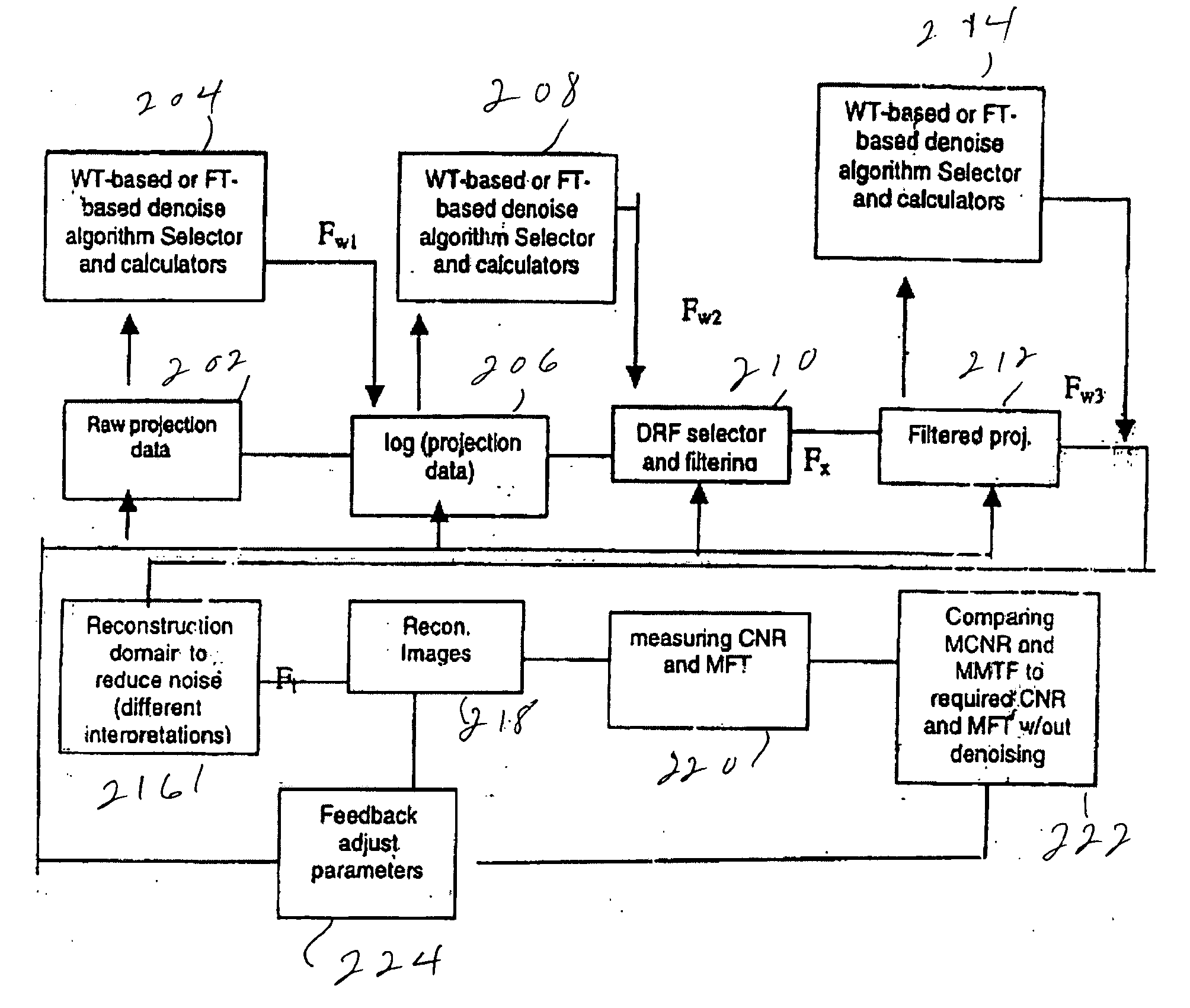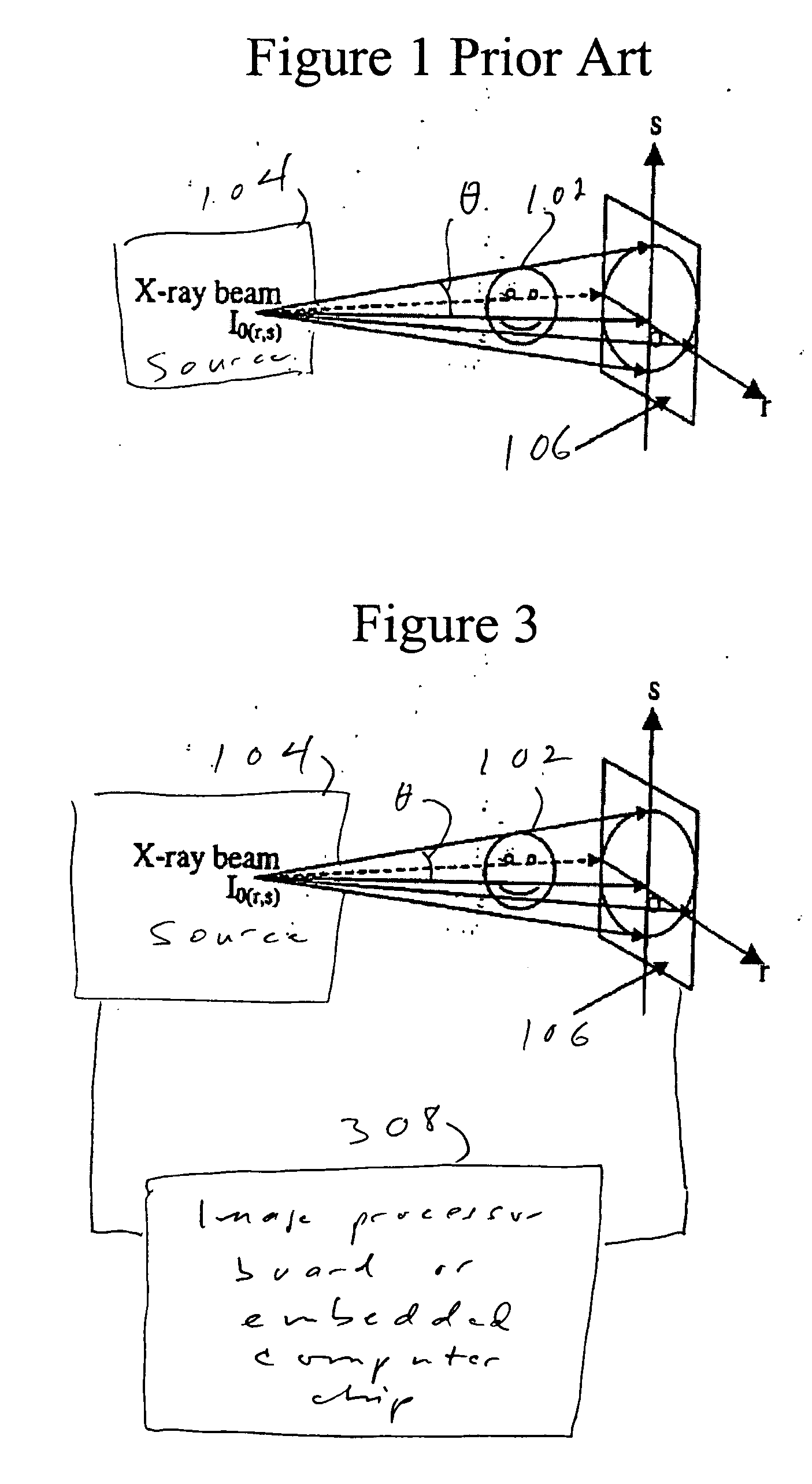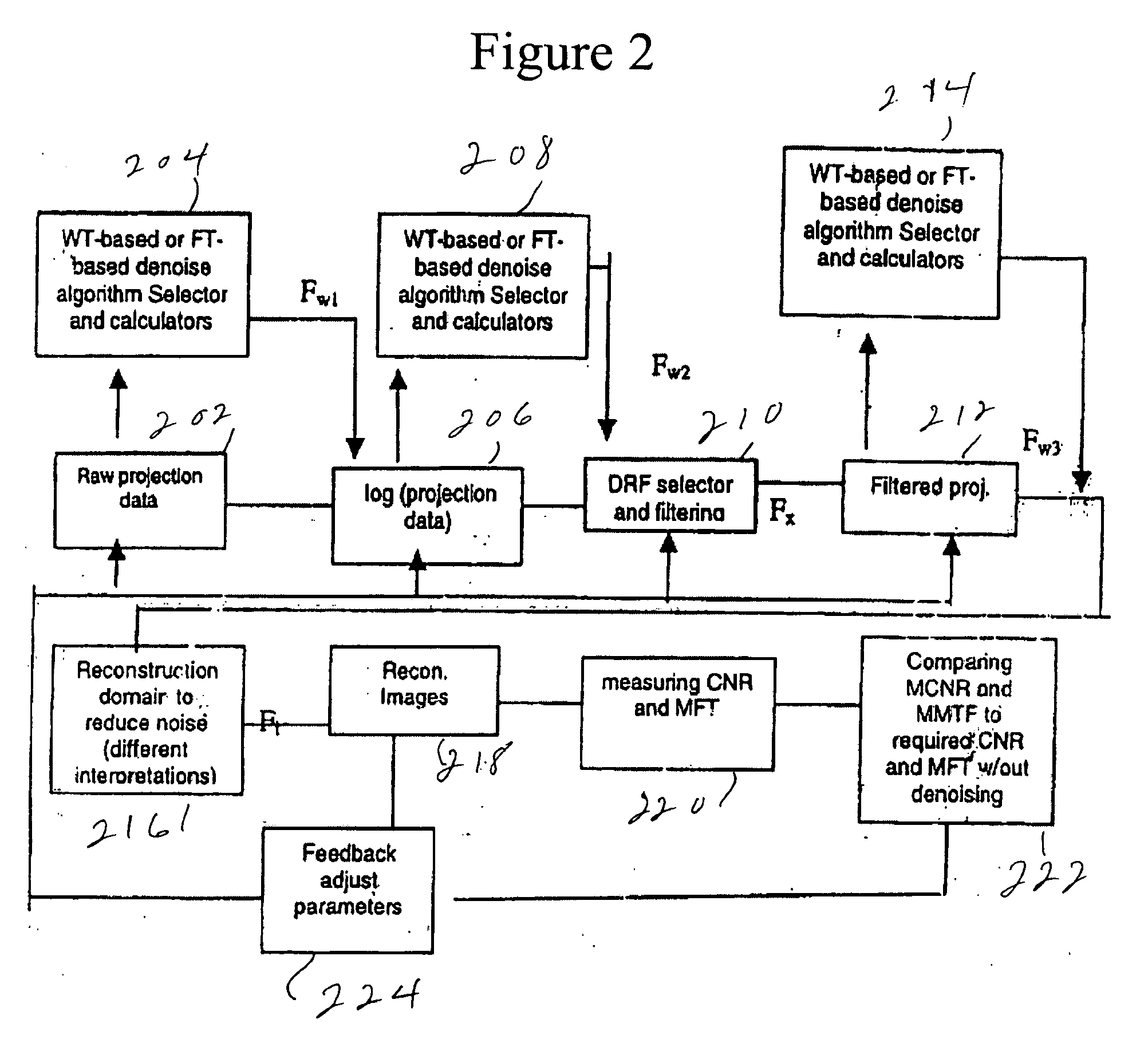Method and apparatus of global de-noising for cone beam and fan beam CT imaging
a global image denoising and computed tomography technology, applied in the field of ct imaging, can solve the problems of inefficient and time-consuming methods, introduce some imaging blur, reduce high frequency information, etc., and achieve the effect of reducing the required x-ray dose, more effective and efficien
- Summary
- Abstract
- Description
- Claims
- Application Information
AI Technical Summary
Benefits of technology
Problems solved by technology
Method used
Image
Examples
Embodiment Construction
[0032] A preferred embodiment of the present invention will be set forth in detail with reference to the drawings, in which like reference numerals will refer to like elements or steps throughout.
[0033]FIG. 2 shows a flow chart of the preferred embodiment. Steps 202 through 214 are performed in the projection domain, while steps 216 through 224 are performed in the reconstruction domain.
[0034] Raw projection data taken in step 202 are applied to a WT-based or FT-based denoising algorithm selector and calculator in step 204 to produce Fw1. Also, the logarithm of the projection data is computed in step 206. Fw1 is applied to denoise the logarithm of the projection data, and the result is applied in step 208 to a WT-based or FT-based denoise algorithm selector and calculator to produce Fw2. The denoised logarithm of the projection data and Fw2 are applied to a DRF selector and filtering 210, which produces Fx, which is used to produce filtered projections in step 212. The filtered pr...
PUM
| Property | Measurement | Unit |
|---|---|---|
| noise ratio | aaaaa | aaaaa |
| carrier to noise ratio | aaaaa | aaaaa |
| fan beam computed tomography | aaaaa | aaaaa |
Abstract
Description
Claims
Application Information
 Login to View More
Login to View More - R&D
- Intellectual Property
- Life Sciences
- Materials
- Tech Scout
- Unparalleled Data Quality
- Higher Quality Content
- 60% Fewer Hallucinations
Browse by: Latest US Patents, China's latest patents, Technical Efficacy Thesaurus, Application Domain, Technology Topic, Popular Technical Reports.
© 2025 PatSnap. All rights reserved.Legal|Privacy policy|Modern Slavery Act Transparency Statement|Sitemap|About US| Contact US: help@patsnap.com



